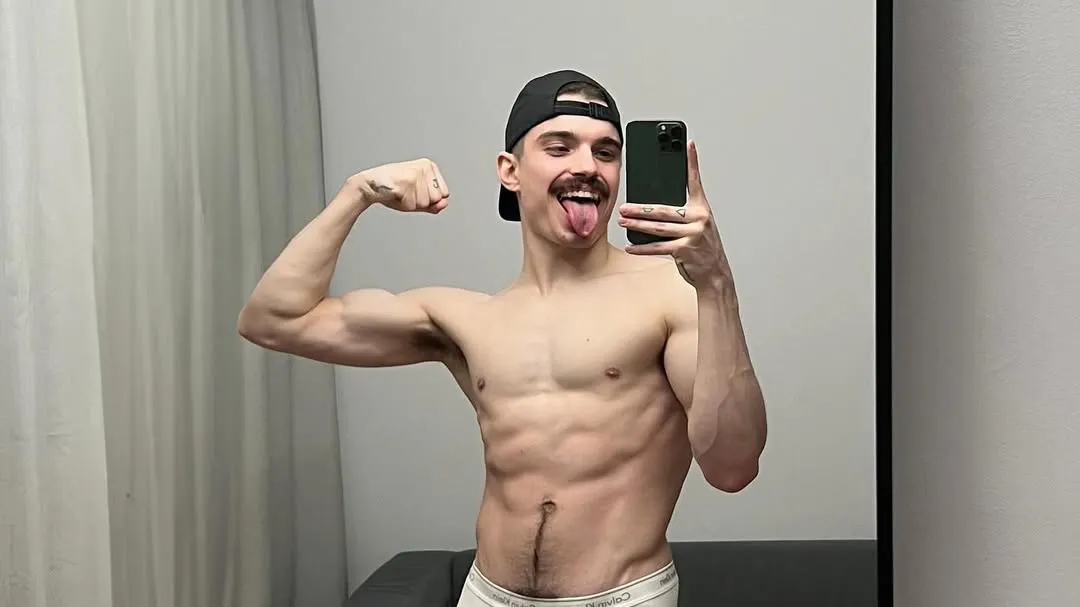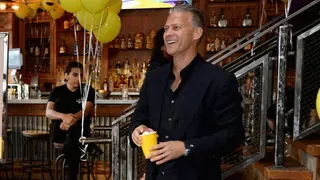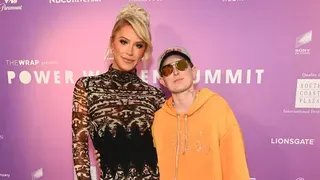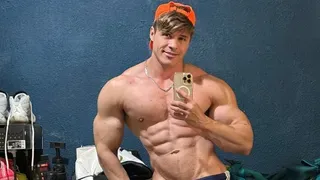June 28, 2011
Scissor Sisters' Jake Shears & John Gardner make 'Tales' sing
Jim Halterman READ TIME: 9 MIN.
The classic book series Tales of the City is a touchstone for many a gay man and woman, not only for its whimsical stories of romance, mystery and friendship but for author Armistead Maupin's honest and entertaining portrayal of gay and straight life in San Francisco in the 1970s. From the gay perspective, when the series began, AIDS was an acronym yet to be invented and gay rights were something saved for that parade in June. Despite how far we've come since the first book appeared, the series remains beloved because it captured a time that still has great meaning.
It makes sense, then, that even after the popular television adaptations starring Laura Linney and Olympia Dukakis, that there would return in another form, in this case as a new musical. Tales of the City opened in San Francisco at the American Conservatory Theater (ACT) earlier late last month and has been so successful it has been extended through July 31, 2011.
With the cooperation of Maupin, Tony-winner Jeff Whitty (for "Avenue Q") serves as book writer, with Scissor Sisters' Jake Shears and John "JJ" Gardner writing the music and lyrics. In this much-anticipated production, directed by Tony-nominated Jason Moore (also for "Avenue Q"), Tony-winner Judy Kaye (not for "Avenue Q," but for "Phantom of the Opera") stars as Anna Madrigal, Betsey Wolfe as Mary Ann and Wesley Taylor as Mouse.
In reviewing the show in the New York Times, Charles Isherwood wrote "the authors do not use superficial nostalgia as a serotonin trigger in the way so many new jukebox musicals today do. The show splashes about in the period-kitsch playground with happy abandon - there's a scene at a roller disco, and the costumes by Beaver Bauer (a Maupin-worthy name) are a parade of sartorial sense-memory evocations for anyone who lived through the era - but the show never devolves into a generic 1970s theme night."
EDGE's Jim Halterman chatted with Shears and Garden recently about their personal connections with the source material, the challenges in creating a musical so beloved to so many and whether Broadway is the next stop on the "Tales of the City" agenda.
Connecting with the books
EDGE: John, how was this different in how you've worked with Jake in the past since this time you're writing music for a staged musical?
John Garden: Yes, it was different. We've not written together too much with the band in the past because I've been more the musical director and keyboard player in the band. It was really just the fact that the first day that Jake grabbed me and pulled me into the project we wrote a song quickly and then it's all come quite easily and it was quite a revelation that we could work together like that.
EDGE: What was your history with "Tales of the City" before this project?
Jake Shears: I read the books when I was 13 years old and they were given to me by a gay couple who probably knew I was gay before I did. I had no idea what it was and I read it and it just rocked me. I had read the whole series when I was a kid and it was the first thing I'd ever read with a positive gay point of view and I think that really shaped my view on myself as I'm sure it did many other people. When Jeff Whitty came to me with the project idea I was already chomping at the bit to write a musical. When I found out it was 'Tales of the City' there was no question in my mind whether or not to do it.
John Garden: I knew the miniseries but I hadn't read the books until Jake involved me in the project so I had a great time getting to know the books fresh and immersing myself in the world. I finished all six books pretty quickly - well, when there were six books.
Watch this feature about the musical "Tales of the City":
Still relevant?
EDGE: Since the musical is set in the 70s, is it safe to assume it's still relevant to 2011?
Jake Shears: I think there's a lot of relevance, but the story is timeless. It's a great moment in time but I don't think it's necessarily what sells the show or the books. I feel like we read the books because they're full of fantastic stories and characters. For me, the time period was always secondary. Any great story is going to stay relevant with great characters. I think that's why we still read the books and why we branched and turned it into this show.
EDGE: We think of the show as this iconic gay project but it's a real mix of gay and straight characters, right?
Jake Shears: It's true. There are gay themes but it's much bigger than that; it's a m�lange. To me, the heart of Tales comes from bohemian versus aristocracy. It's the upper echelon and what happens when they combine with a more broad-minded person and the kind of hijinks that ensue. That's sort of what Tales is all about. It's almost a look at the classes in a way.
John Garden: I think with the class system, it's also about finding family and friends and finding that your real family is not who you expect them to be. I think when people read the books after not reading them for awhile, you kind of identify with a certain character when you read it at a certain point in your life. I think that in all the books and all the ages, all the genders, sexuality and classes you can find yourself in any of the characters and I think that's what resonates with a lot of people.
EDGE: Were you ever tempted to put some contemporary issues into the play like gay marriage or equality or would that have taken it out of the context of the 70s?
Jake Shears: I definitely didn't think about necessarily putting in any contemporary issues but I think that there are things in the show that do resonate now and are still very important. There's a lot of coming out in the show. There's Mouse's coming out, other characters that come out in their own way and I think that's another kind of timeless quality of this show because there are moments where the characters have to confront who they are and be honest about it with themselves and those around them.
EDGE: Did the two of you look at any musicals in terms of how they used music or how they introduced characters just to inform what you were doing with 'Tales of the City?'
John Garden: We did our research and we did look at a lot of shows and revisited a lot of shows we knew when we were younger. There were certain shows that touched both of us in a certain way so you revisit those and look at them with a slightly more analytic eye of 'Why does that work so well?' We definitely were respectful of the Broadway tradition and there's a lot of stuff there.
NYC Bound?
EDGE: Is it safe to assume that after this San Francisco production that Broadway is the next step?
Jake Shears: I've always vowed with this show to be completely focused on whatever incarnation it's in, whether it's a workshop at the O'Neill or running it in San Francisco. In my head I look at the show in any of the incarnations thus far and say, 'This is it. This is possibly the last time I ever see it.' That's how I want to look at it. To me, at this moment, I just want to get it great for San Francisco and I think this city deserves a top notch, amazing version of 'Tales of the City.' No matter how it lives on will be an exciting surprise. Who knows?
John Garden: Absolutely. This is such the right way to get the first incarnation of the show, definitely. It would've felt weird to do it anywhere else. I feel the same way. If we see this version of the show and that's it, I'll be happy. Everybody here is working so hard and being so supportive and we can make this the best that it can be.
EDGE: Because the show is set in the 70s, was it a challenge to write music that was specific to that era?
Jake Shears: We approached it in a really natural way. I think that my writing style and John's already tends to head in that direction whether we like it or not or whether we intend that or not. We already kind of have that vocabulary in our systems. I was very careful about not wanting to make some sort of 70s pastiche of a show and it's not. There are so many different styles of music in the show and it's not...I really wanted and I can speak for both of us, I think, we wanted to make the music to feel as timeless as the story. I didn't want the music to seem stuck in this dated place.
EDGE: You had a lot of the songs done before casting began. Did the songs change once everyone fell into place?
Jake Shears: You're discovering things about the characters and the actors a lot of the time. You're sort of discovering things together so there's tons of fine-tuning and right now all the little details are going in and you're constantly trying to clarify each character's journey and what their motivations are. Now we're into the nitty gritty minutiae of the lyrics and it's been really interesting. You know, Betty Buckley did a workshop of this show last fall and John and I had been having a hard time writing this song for Anna Madrigal. We had written this song in this spot for a long time and we wrote many songs that just didn't seem to work but the moment we found out that Betty Buckley was going to be doing this workshop as Anna, one of the best songs in the show just poured out very easily. I think part of the reason of that is we could suddenly visualize who was going to be singing it and it was an easier perspective to latch onto. There were a few challenges like that that once you're with the actors its suddenly easier to visualize what you're trying to say.
If you're in San Francisco, you can see Tales of the City through July 31, 2011. For more information and tickets, go to Watch this interview with Jake Spears and Armistead Maupin about the musical version of "Tales of the City."
Jim Halterman lives in Los Angeles and also covers the TV/Film/Theater scene for www.FutonCritic.com, AfterElton, Vulture, CBS Watch magazine and, of course, www.jimhalterman.com. He is also a regular Tweeter and has a group site on Facebook.





